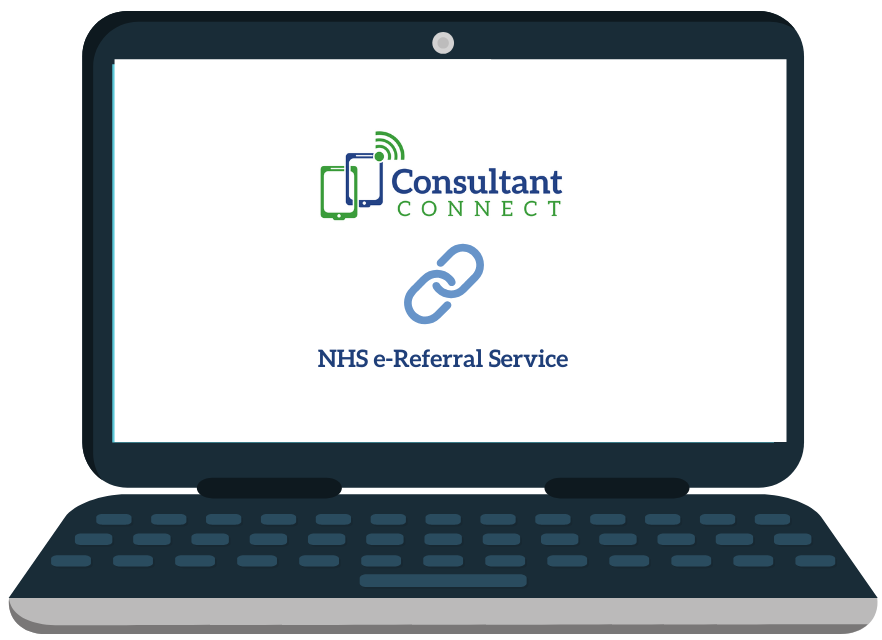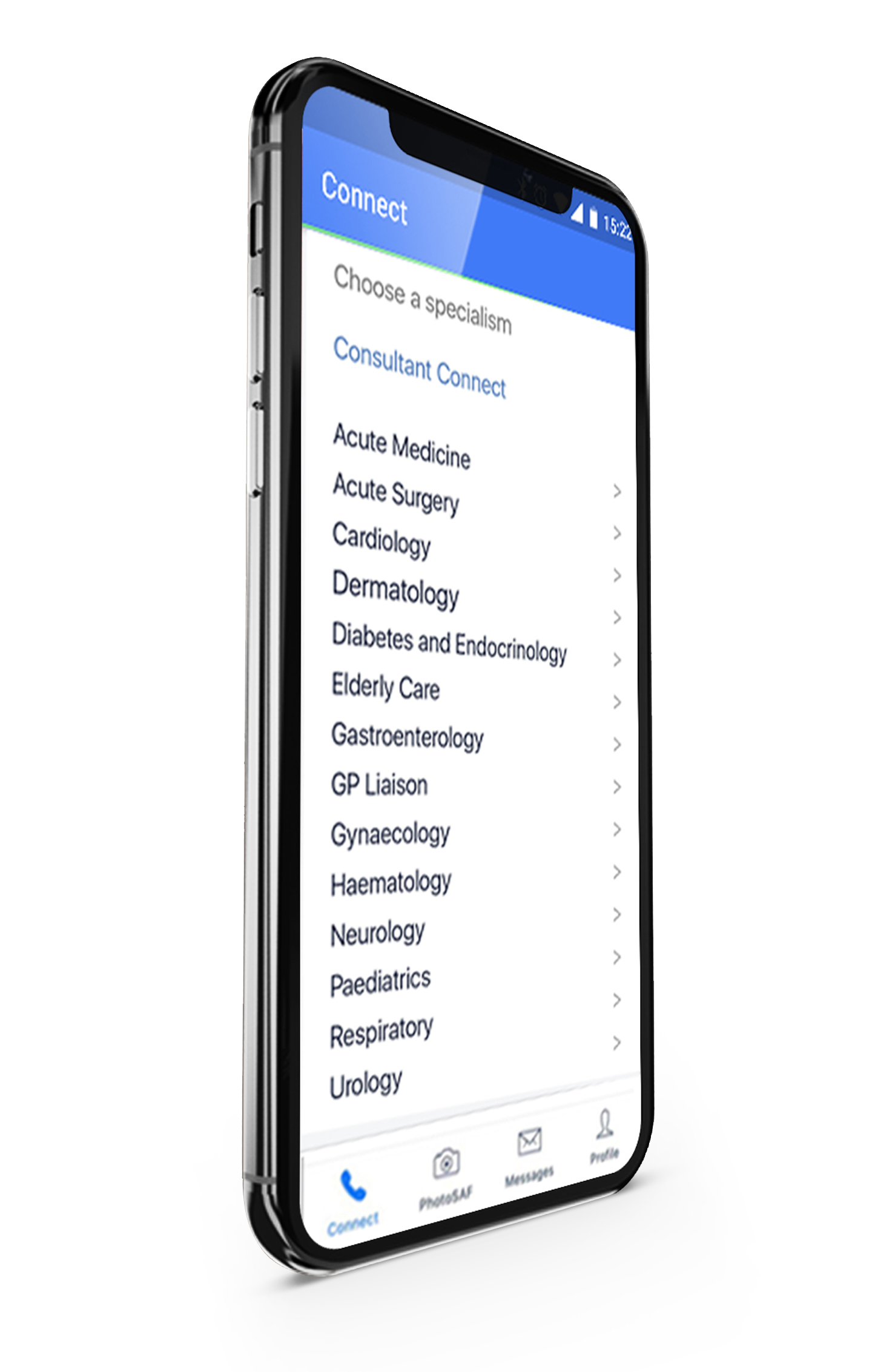Enhanced Advice & Guidance
Supported by the National Consultant Network, our ‘multi-channel’ Enhanced Advice & Guidance (A&G) services – via telephone, instant messaging or e-RS –are designed to fit seamlessly into existing clinical workflows.
e-RS Connect
Developed in collaboration with the NHS e-RS team using official NHS e-RS APIs, e-RS Connect integrates seamlessly with existing clinical workflows. e-RS Connect helps secondary care clinicians manage their Advice & Guidance (A&G) and referral workloads 2-4x faster, saving time, reducing pressure, and improving responsiveness.
Referral Triage and Validation
NHS consultant capacity to triage backlogs and temporarily support with restoration of services.
National Consultant Network (NCN)
The National Consultant Network comprises out-of-area NHS consultants who can answer pre-referral Advice & Guidance calls or review photos and messages. The consultants can act as a backup for local teams and provide locally unavailable specialties.
Patient-Initiated Follow-Up (PIFU)
A follow-up service that enables patients to initiate an IG-secure virtual consultation with a specialist clinician. All data and call recordings are available via Consultant Connect in your browser.
Enhanced Advice & Guidance
Supported by the National Consultant Network, our ‘multi-channel’ Enhanced Advice & Guidance (A&G) services – via telephone, instant messaging or e-RS –are designed to fit seamlessly into existing clinical workflows.

e-RS Connect
Developed in collaboration with the NHS e-RS team, e-RS Connect integrates seamlessly with existing clinical workflows. e-RS Connect helps secondary care clinicians manage their Advice & Guidance (A&G) and referral workloads 2-4x faster, saving time, reducing pressure, and improving responsiveness.

Referral Triage and Validation
NHS consultant capacity to triage backlogs and temporarily support with restoration of services.

National Consultant Network (NCN)
The National Consultant Network comprises out-of-area NHS consultants who can answer pre-referral Advice & Guidance calls or review photos and messages. They can also remotely triage and validate waiting list backlogs in bulk and/or new referrals as they come in.

Patient Initiated Follow up (PIFU)
A follow-up service that enables patients to initiate an IG-secure virtual consultation with a specialist clinician. All data and call recordings are available via Consultant Connect in your browser.

Covering >45 million patients across over half the NHS in England, Scotland and Wales.
What we do
NHS commissioners explain why they like our services…
Consultant Connect
Consultant Connect is a telemedicine provider transforming patient care in the NHS through better communications.
By having immediate and direct access to specialist advice, clinicians can ensure that patients get the right care the first time. As this often means that patients avoid unnecessary trips to hospital, the NHS saves money and hospital specialists spend their time dealing with patients that they need to see. It’s a great outcome for everyone.
Read our case studies and blog to find out more!
Consultant Connect
Consultant Connect is a telemedicine provider transforming patient care in the NHS through better communications.
By having immediate and direct access to specialist advice, clinicians can ensure that patients get the right care the first time. As this often means that patients avoid unnecessary trips to hospital, the NHS saves money and hospital specialists spend their time dealing with patients that they need to see. It’s a great outcome for everyone.
Read our case studies and blog to find out more!
Contact us
For more information about how we work with commissioners, hospitals and mental health trusts to improve patient care, please get in touch.
Join a webinar
Listen to health experts from the comfort of your desk as we bring the experts to you in our series of online webinars.
Join our mailing list
Join our mailing list and we'll keep you informed of our latest blogs, project news, and upcoming webinar dates and topics.
